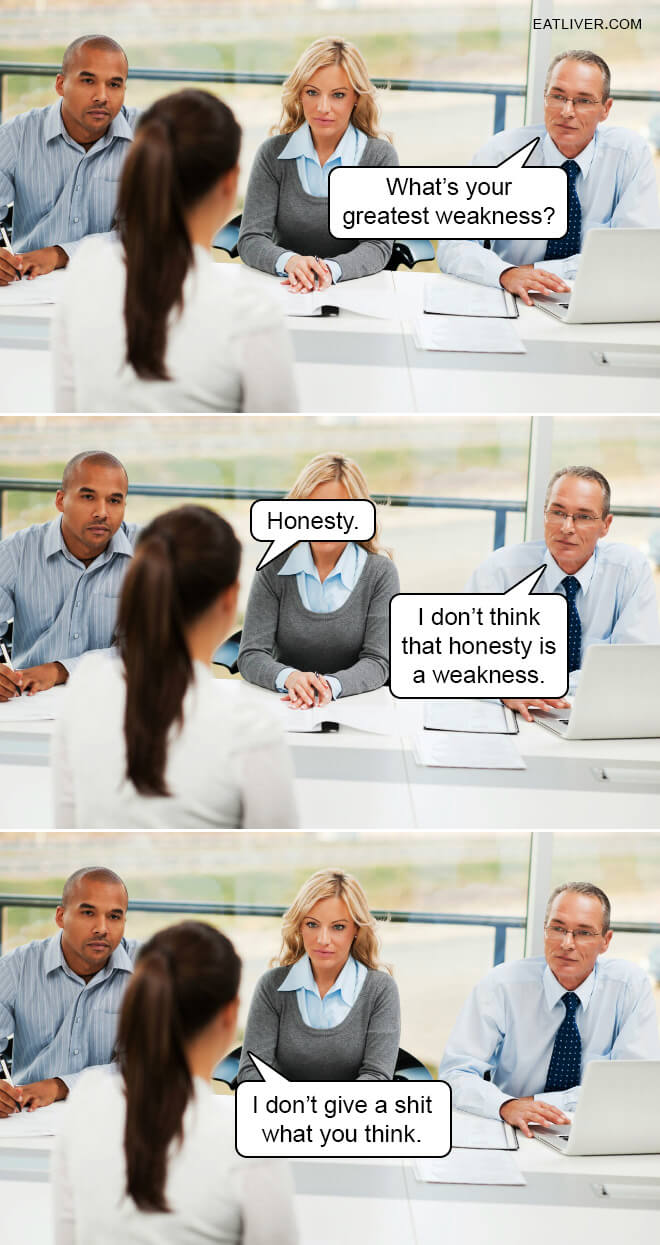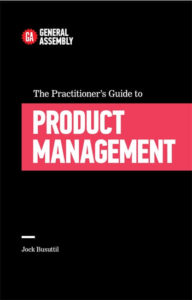
47: How I learned to stop hating job interviews
I’m writing about one hundred things I’ve learned as a product manager.
I’ve never enjoyed job interviews. The inane questions annoy me most. This is how I learned to stop hating job interviews.

There are many potential reasons why I dislike interviews so much. Perhaps it’s because:
- both I and the interviewer know we’re both being forced to dance around each other in some time-honoured tango of recruitment;
- I never really know what the interviewer is looking for in a candidate and hate having to guess;
- I hate having to wear a suit and tie to an interview at a company where almost everyone is wearing jeans and a t-shirt; or
- my memory’s terrible and I’ve genuinely blanked out entire sections of my working life, so answering detailed questions on how I dealt with a particular crisis eight years ago is somewhat of a challenge.
Some interviewers want to check whether I’ve diligently read through the contents of their corporate website and thus understand everything about their products. More often than not, marketing fluff had rendered all product information entirely content-free, and it didn’t take long to discover that the product description and reality bore little relation to each other.
Other interviewers want to determine whether I can in fact manage products – not unreasonable in the circumstances. However I’d argue that my abilities won’t be demonstrated adequately through forty-five minutes of abstract questioning or by play-acting through an apocalyptic, worst-case scenario. (And if that scenario was even remotely realistic, you can keep the job, thanks. I’m not a masochist.) Instead let me work with the product team for a week. If I’ve not managed to make myself useful by then, you have every right to boot me back out.
The last time I checked, I was trying to score a job, not a date
Sometimes the idea is to assess my personality fit with the team. But unless the entire team is planning to sit in on the interview like some kind of weird jury, this can rapidly turn into an assessment of whether in fact I get on with the interviewer. The last time I checked, I was trying to score a job, not a date. I think this situation also places the outcome of the interview in the lap of the gods. If the interviewer has just come from an irritating meeting, has already conducted six interviews already that day, or simply has a headache, despite how I perform, I’m unlikely to be remembered favourably.
Furthermore, I’d argue that actively recruiting by personality creates a positive bias towards recruiting sociopaths. They’re a joy in the interview, but once they start work, it rapidly becomes clear that they actually just want to kill someone, steal their clothes and assume their life. I think. One unreconstructed company I worked at would recruit their salespeople solely on the strength of whether they’d offer good banter down the pub. And then wondered why their sales team spent more time drinking than selling.
Another of my pet hates is the style of interview that sits me in a meeting room for hours while a steady succession of people come in and – because it was evident none had prepared – ask me the same questions about my CV over and over again. The sole highlight was when one interviewer in the sequence failed to turn up, leaving me on my own in silence for twenty blissful minutes.
Aside from never having to wear a tie again, one of my greatest pleasures since starting up my product management consultancy Product People has been that I rarely end up being interviewed. Or rather I should say that I rarely feel like I’m being interviewed. I regularly chat with prospective clients but unlike interviews, they cut to the chase. They have a problem. Can I help them solve it? They tend not to ask what kind of animal I think their product would be.
The fundamental difference between these discussions and job interviews is that I have exactly the same goal as my clients: they want help and I want to help. If they have a problem that I can’t solve, then there’s little point in me working with them. But should I be making this distinction in the first place? Perhaps I’ve simply been thinking about job interviews the wrong way all this time. Hmm.
If you’re absolutely fine with interviews, then congratulations – you have a superpower. Use it wisely and honourably. If however you’re like me, then maybe you can take the pressure off by turning your interview into a conversation about what their problem is and whether you can help them solve it. I can’t guarantee it will win you a job every time, but it will certainly make the whole process that little bit more bearable.


Leave a Reply